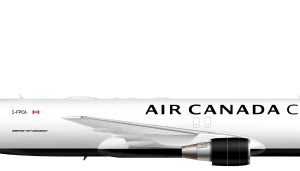CK Govil, President, The Air Cargo Agents Association of India (ACAAI) said, “The India-UK FTA is poised to significantly boost the Indian EXIM trade and cargo industry by reducing tariffs, enhancing market access and streamlining customs procedures. It will open new opportunities for Indian exporters, particularly in textiles, pharmaceuticals and engineering goods, while encouraging UK investment in Indian logistics and infrastructure. The agreement also promises mutual recognition of standards, which will reduce delays and compliance costs. Overall, it strengthens bilateral supply chains and positions India as a reliable trade partner in the post-Brexit global order—bringing a positive ripple effect for air and ocean cargo movements.”
Read More »‘Streamlined customs protocols & harmonised standards will expedite cargo flow’
Xerrxes Master, Managing Director, Masters Group of Companies said, “The India–UK Free Trade Agreement offers transformative benefits for India’s EXIM‑trade and cargo sectors. With 99 per cent of Indian exports to the UK becoming duty‑free—including textiles, footwear, gems, marine products, engineering goods and pharma—export volumes are poised to soar. Streamlined customs protocols and harmonised standards will expedite cargo flow at major ports like Nhava Sheva, Chennai and Mundra, while air‑cargo volumes for perishables and electronics will rise. Logistics providers and freight forwarders will see increased demand for containerized, refrigerated, and digital trade services. Overall, the FTA is set to catalyse supply‑chain efficiency and strengthen India’s position in global trade.”
Read More »‘Improved infra, industrial corridors, SEZs boosting Indian exports’
Prediman Koul, CEO, Jeena & Company said, “The China+1 strategy is significantly boosting India’s role in the global supply chain. As global companies look to diversify beyond China, India is emerging as a strong alternative because we have government-backed schemes like Make in India and Production-Linked Incentives (PLI) that encourage domestic production and invite international investment. Our skilled labour is set to meet the demands and is accessible as compared to other countries. This makes India appealing to sectors that need specialised professionals. India has strengthened trade ties and is working towards improving access to global markets. Enhanced port facilities, industrial corridors and Special Economic Zones (SEZs) have made exporting from India easier and more efficient. We believe this shift is not just a trend but a long-term opportunity for India to become a key supply chain hub, and we are ready to take part as a trusted partner in this journey.
Read More »Air Canada Cargo redesigns e-booking platform
Air Canada Cargo announced the introduction of its redesigned e-booking platform, providing an optimised booking experience for customers and new tools to self-manage shipments. “We are excited to reveal our updated e-booking experience, which provides a more user-friendly interface and a smoother experience for our customers booking their cargo online. With the ability to get real-time feedback and validation, easily create batch bookings, e-AWB, submit release letters and more, this new platform will transform the customer experience and is part of Air Canada Cargo’s ongoing digitalisation,” said Matthieu Casey, Managing Director – Commercial, at Air Canada Cargo. The features of the new e-booking experience include a redesigned, user-friendly interface for a smoother experience, re-imagined account dashboard to keep track of your shipments at-a-glance, dynamic booking flows and calculation fields for greater efficiency, real-time feedback and validation to reduce errors, auto-confirmation for general cargo shipments of 50 kg (0.3 m3) and less, the ability to submit feedback and questions directly from the dashboard, fast and easy rebooking by saving bookings as templates, multi-booking to create batch bookings in minutes, receive tracking notifications to your email, tools to manage your bookings: create e-AWB, edit bookings, add shipper and consignee info, send release letters, and more.
Read More »Air cargo rates hold firm as Asia-US volumes decline: WorldACD
According to the latest weekly figures and analysis from WorldACD Market Data, air cargo rates held firm in the second full week of July, despite a second consecutive week-on-week (WoW) small drop in overall global flown tonnages, with volumes from Asia Pacific origins to the US recording further declines. Global average spot rates edged up slightly (over 1 per cent) in week 28 (7 to 13 July) to US$2.65 per kilo, thanks largely to over 6 per cent WoW rebound in both pricing and tonnages from North America origins following US Independence Day on 4 July. That followed a fall in tonnages of decline of 11 per cent from North America origins the previous week. Like in week 28 last year, the post 4 July recovery for origin North America has not yet fully materialised. Those worldwide average spot rates, and many of the price and demand patterns during week 28, were very similar to the equivalent week this time last year – including global average full-market rates of $2.46 per kilo, based on a mix of spot and contract rates. However, the US dollar is around -6% weaker now than it was a year ago against other major world currencies, such as the euro. In euros, average worldwide rates are down by around -6%, year on year (YoY).
Read More »‘Managing fluctuating capacity & demand vital’
One of the primary challenges GSSA faces is managing fluctuating capacity and demand—especially during peak seasons or unexpected disruptions while maintaining operational efficiency and service quality,”Abhishek Goyal, CEO and Executive Director, Aeroprime Group. He adds, “Regulatory compliance across multiple jurisdictions adds another layer of complexity, with varying customs, security, and documentation requirements in each market. The pace of digital transformation is also reshaping the landscape. GSAs are expected to adopt new technologies swiftly, from cargo tracking tools to automated booking systems — all while training teams to deliver consistently across markets. Within our organisation, we recognize that success in this environment depends on local market expertise, robust infrastructure, and strong stakeholder relationships. Our ability to stay agile and adapt quickly is what allows us to deliver dependable results in both cargo and travel verticals.”
Read More »Pune Int’l airport begins international cargo imports
Pune Airport has officially commenced international cargo imports in June with the arrival of three consignments. These included electronic components for automobiles and fertiliser-related chemicals, shipped from London’s Heathrow Airport via Delhi through transshipment. All three shipments were transported by Air India. The third consignment—personal artefacts—was flown in directly from Bangkok, marking the airport’s entry into global cargo operations, said reports. Between April 2024 and May 2025, a total cargo (domestic and international) of 78,688 metric tonne (MT) was moved from the airport. Of this, just 169.2 MT was international cargo exports. To date, Pune airport has only recorded international cargo exports. These typically consist of auto parts and perishables like fruits and vegetables. Earlier Pune Airport was facing turbulence due to delays in clearances from BCAS.
Read More »Armstrong boosts warehousing efficiency in Asia with Zebra’s technology
Armstrong Industrial Corporation (Armstrong Asia) has integrated Zebra Technologies solutions to enhance warehousing operations in Malaysia and Thailand. To enhance its ERP system and replace manual processes related to labor tracking and inventory management, Armstrong Asia is using Zebra’s ET40 enterprise tablets, MC33 mobile computers, ZT411 tablets, MC33 mobile computers, ZT411 industrial printers and Zebra OneCare support. “Zebra Technologies has better equipped our team members to optimize production tracking and warehouse operations,” said Eugene Ong, Executive Director, Armstrong Asia. “These solutions enable real-time data collection, improve asset visibility, and enhance connected frontline productivity.”
Read More »2nd India Cargo Terminal Expo to focus on automation & multimodalism
As anticipation builds for the 2nd India Cargo Terminal Expo & Conference 2025, the logistics and air cargo industry are set to converge once again for one of the most focused events in the sector. Scheduled to be held from 28 to 30 August 2025 at Yashobhoomi Convention Centre, Dwarka, New Delhi, the event aims to bring together key stakeholders from air cargo, ports, rail terminals, inland ports, CFS, warehousing, logistics and technology providers, the event promises to spotlight innovations, policy developments and infrastructure advancements shaping India’s cargo terminal ecosystem. With a strong emphasis on automation, sustainability and multimodal integration, the upcoming edition aims to facilitate strategic dialogue and partnerships that drive the sector’s growth. Stay tuned as we preview expert sessions, industry showcases, and the collaborative opportunities that lie ahead at this much-anticipated gathering.
Read More »SriLankan Cargo joins WebCargo by Freightos to enhance efficiency
SriLankan Cargo has joined WebCargo by Freightos. The integration allows over 10,000 freight forwarding offices worldwide to seamlessly access SriLankan Cargo’s capacity, request quotations, make bookings and process payments in real time. “By joining Freightos’ WebCargo platform, we’re not just digitalising our booking process – we’re expanding our reach to thousands of new potential customers,” said Chaminda Perera, Head of Cargo at SriLankan Airlines. “The integration with Freightos rate management and procurement tools ensures our services are visible at the critical decision-making stage of the freight buying process.” “SriLankan Cargo brings high-quality regional capacity into our digital network at a time when agility is key,” said Zvi Schreiber, CEO of Freightos. “By integrating their rates and capacity, forwarders gain instant and enhanced access to critical South Asian trade lanes, including Colombo and India.” The integration also expands market participation through WebCargo Pay which allows non-IATA forwarders across Asia to access SriLankan Cargo’s capacity without requiring airline credit lines or bank guarantees. This democratization of access is particularly valuable in emerging markets, where many SME forwarders have historically faced barriers to carrier capacity. SriLankan Cargo offers extensive coverage across key trade lanes in the Middle East, Southeast Asia, Europe and the Indian Subcontinent, supported by a robust feeder network using Colombo as a consolidation hub.
Read More » Cargo Breaking News
Cargo Breaking News








